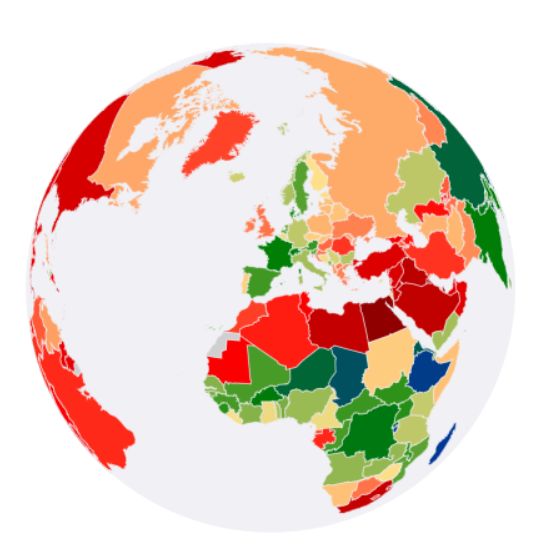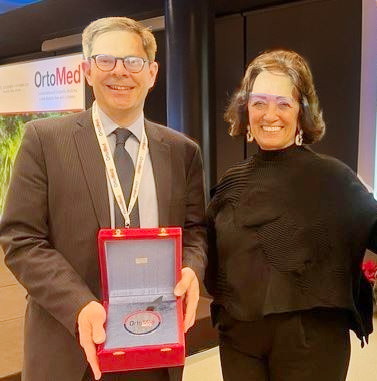[vc_row][vc_column][vc_column_text]Researchers from the University of Southampton are calling for greater awareness of preconception health and improved guidance, with greater focus on diet and nutrition to improve the health of future generations.
In a new series of papers published in The Lancet, they discuss how parents’ diets and health can have profound implications for the growth, development, and long-term health of their children before their conception.
These findings have substantial societal and public health implications, and point to a new emphasis on preparing for conception.[/vc_column_text][/vc_column][/vc_row][vc_row][vc_column][vc_column_text]Dr Mary Barker, from the Medical Research Council Lifecourse Epidemiology Unit, University of Southampton and author of the third paper in the Series, said:[/vc_column_text][vc_column_text]
“We have a large amount of evidence that shows the preconception period is of paramount importance in helping the next generation be healthier in ways that drive down rates of obesity, diabetes and other non-communicable diseases. The good news is that this involves everyone. We need a top down approach as well as bottom up approach. It is everyone’s responsibility to support our young adults become successful parents of healthy, long-lived children.”
[/vc_column_text][/vc_column][/vc_row][vc_row][vc_column top_margin=”page_margin_top”][vc_column_text]To help improve health in future generations, the authors call for a joint focus, including better guidance and support for individuals planning pregnancy, and increased public health measures to reduce obesity and improve nutrition. They suggest that behaviour change interventions, supplementation and fortification could lead to preconception health improvements.[/vc_column_text][vc_column_text]The Series draws on existing evidence from around the world to redefine the preconception period, outlines how preconception risk factors affect the unborn baby and lifelong health risks, and proposes interventions to help improve preconception health. The authors present two new analyses of the diets and health of women of reproductive age (18-42 years old) in the UK and Australia.[/vc_column_text][/vc_column][/vc_row][vc_row][vc_column][vc_column_text]
“The preconception period is a critical time when parental health – including weight, metabolism, and diet – can influence the risk of future chronic disease in children, and we must now re-examine public health policy to help reduce this risk,”
[/vc_column_text][vc_column_text]says lead author of the Series, Professor Judith Stephenson, UCL, UK.[/vc_column_text][/vc_column][/vc_row][vc_row][vc_column][vc_column_text]Professor Stephenson also stresses:[/vc_column_text][vc_column_text]
“This isn’t about provoking fear or blaming individuals – our analysis establishes the importance of health of the next generation, stresses societal responsibility, and demands strong local, national and international leadership.” [1]
[/vc_column_text][/vc_column][/vc_row][vc_row][vc_column top_margin=”page_margin_top”][vc_column_text]Defining the preconception period
Previous research has defined the preconception period as the three months before conception, as this is the average time it takes for fertile couples to become pregnant. However, this is imprecise, and ignores the time taken to achieve preconception health improvements – with some taking less than a month (such as achieving adequate folate concentrations through supplements) and others taking months or years (such as achieving a healthy weight).
Taking this into account, the Series authors redefine the preconception period biologically – as the days to weeks before and after fertilisation; individually – as the weeks or months when a woman or couple decides to have a child; and at a public health level – as the months or years needed to address preconception risk factors, such as diet and obesity, before pregnancy.[/vc_column_text][/vc_column][/vc_row][vc_row][vc_column top_margin=”page_margin_top”][vc_column_text]Preconception health risk factors
Evidence suggests that smoking, high alcohol and caffeine intake, diet, obesity and malnutrition potentially cause genetic, cellular, metabolic and physiological changes during the development of the unborn baby [2], which have lasting consequences into adulthood and increase the child’s lifelong risk of cardiovascular, metabolic, immune, and neurological diseases.
In particular, maternal obesity, which is also linked to poorer birth outcomes, is thought to increase levels of inflammation, hormones and metabolites, which may directly alter the development of the egg and embryo to increase the risk of chronic disease in later life. Male obesity is also important, and is associated with poor sperm quality, quantity and motility, which could increase the risk of chronic disease in later life. However, it is uncertain whether paternal diet and obesity have as strong an influence as maternal preconception health.
The authors also note that there could be more risk factors associated that have not yet been identified.[/vc_column_text][/vc_column][/vc_row][vc_row][vc_column top_margin=”page_margin_top”][vc_column_text]
“Better understanding of the underlying mechanisms – including epigenetic, cellular, metabolic, or physiological effects – and the exposures that drive them, will be important and help us to provide more detailed preconception health recommendations in the future.”
[/vc_column_text][vc_column_text]says Professor Keith Godfrey, NIHR Southampton Biomedical Research Centre and University of Southampton, UK. [1][/vc_column_text][/vc_column][/vc_row][vc_row][vc_column top_margin=”page_margin_top”][vc_column_text]In a new analysis, the authors calculate the proportion of women of reproductive age (18-42 years old) in the UK who are nutritionally prepared for pregnancy, using data from 509 women of reproductive age in the UK National Diet and Nutrition Survey. They estimate that many UK women are not nutritionally prepared for pregnancy, and almost all women of reproductive age (96%) have iron and folate dietary intakes below the recommendation for pregnancy (14.8mg per day, and 400µg per day, respectively).[/vc_column_text][vc_column_text]Based on these associations and the proportion of women likely to be nutritionally unprepared, the authors call for interventions that start years before pregnancy. They reinforce the importance of improving everyone’s health from an early age as a way to avoid poor preconception health, and improve the health of future generations.[/vc_column_text][/vc_column][/vc_row][vc_row][vc_column top_margin=”page_margin_top”][vc_column_text]Tom Fleming, Emeritus Professor of Developmental Biology at the University of Southampton, who co-authored the second paper in the series alongside Professor Godfrey, added:[/vc_column_text][vc_column_text]
“Research is now showing that our gametes and early embryos are sensitive to a variety of environmental conditions including poor parental diet. These effects can change the process of development, affecting growth, metabolism and health of offspring, so makes the case for both parents to have a healthy lifestyle well before conception and pregnancy.”
[/vc_column_text][/vc_column][/vc_row][vc_row][vc_column top_margin=”page_margin_top”][vc_column_text]Improving preconception health
Some studies suggest that dietary influences from a number of years before conception may have effects. With 2012 estimates suggesting that 40% of global pregnancies were unplanned, efforts to improve nutrition and health behaviour at a population level are needed to support individual efforts among those planning ahead for pregnancy.
To do this, the authors recommend interventions that span the lifetime [3]. They say that these interventions should understand and harness people’s reasons to engage with preconception health at different stages in their lives to support people to change.
Starting in adolescence, the authors propose that schools need to help young adults prepare for parenthood in the future. Support for improving nutrition before conception needs to be offered in ways that engage adolescents in thinking about their diets and health, and the implications of this in later life, in pregnancy, and for future generations. The University of Southampton LifeLab programme has already started to do this.
In adults with no immediate plans to become pregnant, they call for social change that supports improved public awareness of preconception health. Lastly, in adults planning to become pregnant, they call for improved support and practical tools for preconception health.
The authors also suggest that the food industry and food retailers should be part of the solution, working alongside government organisations, non-governmental organisations, and research institutions to form advocacy coalitions to create more demand for preconception health support.[/vc_column_text][/vc_column][/vc_row][vc_row][vc_column top_margin=”page_margin_top”][vc_column_text]Dr Barker added:[/vc_column_text][vc_column_text]
“Current preconception health interventions may be limited by their focus on individual responsibility, and not directly addressing social influences or the obesogenic environment. Improving the overall health of the population, as well as raising awareness of the importance of the preconception period could help improve the health of future generations.”
[/vc_column_text][vc_column_text]
“We have the infrastructure to do this in our existing health and education platforms and a global food system, but must now prioritise improving preconception health.” [1]
[/vc_column_text][/vc_column][/vc_row][vc_row][vc_column top_margin=”page_margin_top”][vc_single_image image=”4665″ img_size=”medium” alignment=”center” style=”vc_box_shadow_3d” onclick=”custom_link” img_link_target=”_blank” link=”http://www.mrc.soton.ac.uk/web2/files/2013/04/Lancet_Preconception_Health_Policy_Brief-final.pdf”][/vc_column][/vc_row]








